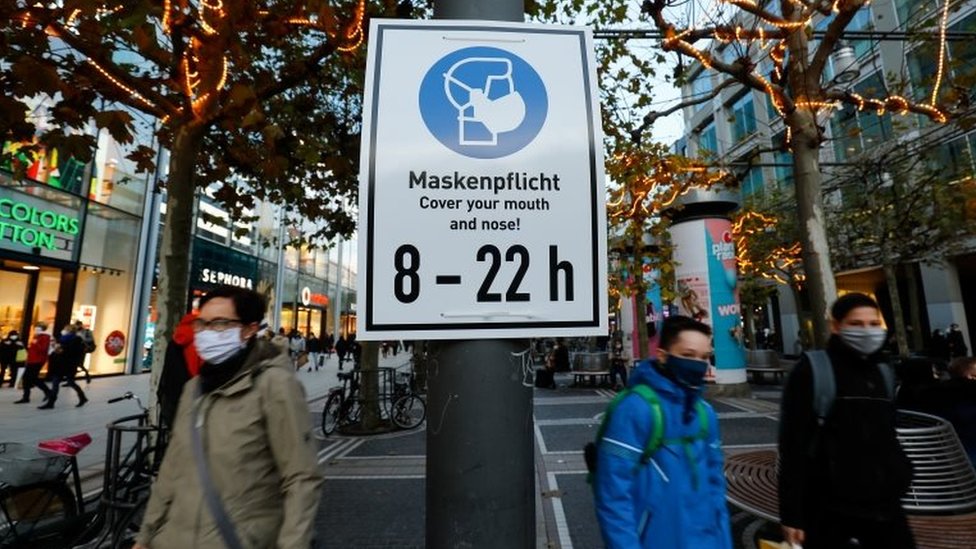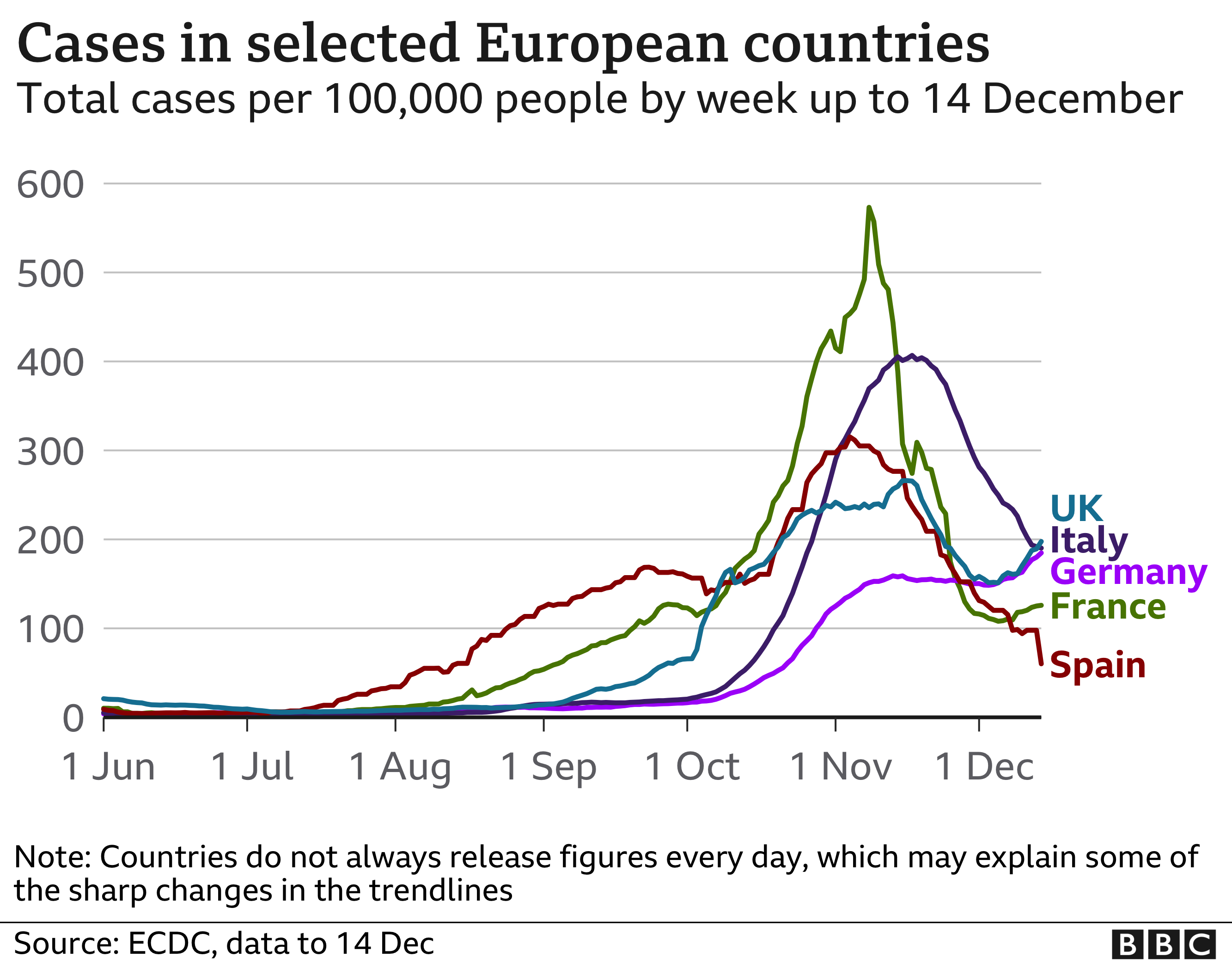Covid-19: Germany introduces new restrictions amid rise in cases

Reuters
Germany has entered a hard lockdown, closing schools and non-essential businesses in an attempt to stop a sharp rise in Covid-19 infections.
The measures will be in place until 10 January. Christmas will see a slight easing, with one household allowed to host up to four close family members.
The country reported another 952 deaths and 27,728 cases on Wednesday.
Other European countries have tightened restrictions ahead of Christmas, with France introducing a night-time curfew.
Under Germany’s new measures, only essential businesses such as supermarkets and banks will be allowed to remain open. Restaurants, bars and leisure centres have been shut since November and some areas of the country had imposed their own lockdowns.
Hair salons are among the businesses which must close, while drinking alcohol in public places, such as popular mulled wine stalls, is forbidden. Companies are being urged to allow employees to work from home.
-
Germans start holiday lockdown amid Covid surge
- What are the restrictions around Europe?
- Tracking the global coronavirus outbreak
The 952 new fatalities announced on Wednesday are a new peak for Germany’s pandemic, but may cover numbers that were not included in previous days.
Lothar Wieler, head of Germany’s Robert Koch Institute, which is overseeing the Covid-19 response, said the situation was “more serious than it has ever been”.
“The number of cases is higher than ever and they keep rising. There is the danger that the situation will keep getting worse and it will get harder and harder to deal with the pandemic and its consequences,” he said.
It comes as the German government said it was pressuring the European Medicines Agency (EMA) to speed up approval of the Pfizer/BioNTech vaccine, which was developed in Germany. It has already been approved by regulators in the UK and the US.
Health Minister Jens Spahn said he wanted the vaccine to be approved before Christmas. A meeting by the EMA to discuss whether the vaccine should be rolled out around the bloc has been brought forward from 29 December to next Monday.
What’s the situation elsewhere in Europe?
France has replaced its second national lockdown with a curfew from 20:00 to 06:00. People will not be allowed out of the house without an authorisation form.
Christmas Eve will be exempt, but the rule will stay in place for New Year’s Eve. Bars and restaurants are to remain closed until at least 20 January.
The number of people in France who have died from coronavirus infections rose by 790 on Tuesday to a total of 59,072.
People in France are no longer required to print or download an official justification for leaving their homes during the day.


The Netherlands is currently under a five-week lockdown, the strictest set of measures announced in the country since the pandemic began.
Non-essential shops, cinemas, hairdressers and gyms have all closed, and schools will follow suit on Wednesday. People have also been told to refrain from booking non-essential travel abroad until mid-March.
But restrictions will be eased slightly for three days over Christmas, when Dutch households are allowed three guests instead of two.
In the UK, London entered England’s highest tier of lockdown rules on Wednesday. Pubs and restaurants must close, except for takeaway and delivery, and indoor entertainment venues such as theatres, bowling alleys and cinemas must remain shut.
Meanwhile, Italy’s daily death toll is still close to 500 and the government is considering a further tightening of measures over Christmas.
The exact details are unclear, but a new lockdown could come into place between Christmas night and New Year. Prime Minister Giuseppe Conte described the potential lockdown as a “new squeeze”.


- SYMPTOMS: What are they and how to guard against them?
- JOBLESS TALES: ‘I’m just looking for whatever I can get’
- SUPERSPREADERS: What makes some events so risky?

Published at Wed, 16 Dec 2020 06:53:07 +0000





Comments
Loading…